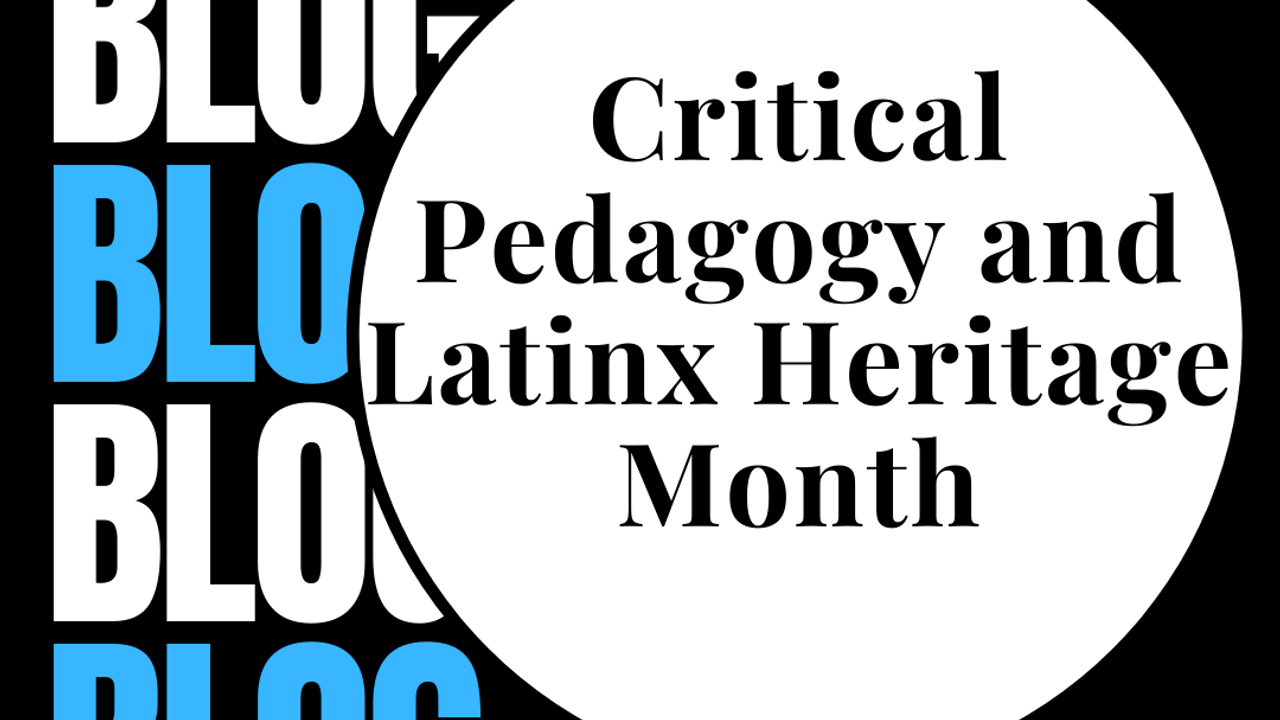Critical pedagogy and Latinx Heritage Month

Critical pedagogy and Latinx Heritage Month by Mary T. Perez
Websites offering resources for Hispanic Heritage Month often focus on celebration. As the National Archives puts it: “We celebrate Hispanic Heritage Month to recognize the achievements and contributions of Hispanic American champions who have inspired others to achieve success.” It’s true that there are many achievements and contributions from Latinx people that go unnoticed in the public eye and need to be celebrated.
But, as critical, anti-racist educators we recognize that such celebrations can reify stereotypes, focusing on single stories without considering fuller socio-historical contexts. How can we employ our racial literacy skills to examine power structures that marginalize many Latine communities?
As we think about Latinx Heritage Month from a critical, anti-racist educator perspective we are reminded to push against the accumulation of knowledge. Feminist scholar, Chandra Mohanty, reminds us: “Education for critical consciousness or critical pedagogy as it is sometimes called, requires a reformulation of the knowledge-as-accumulated-capital model of education and focuses instead on the link between the historical configuration of social forms and the way they work subjectively” (Feminism Without Borders, 195). In order to resist knowledge-as-accumulation, we want to help our students to explore how social structures impact their lives and the lives of communities that might not be their own. To do this we can recognize our own positionality and listen to the voices and experiences of others from their situatedness.
For example, Hispanic Heritage Month lessons might focus on famous or popular musicians. Instead, what music can we offer students that resists stereotypes of Latin music? Consider including music from queer Latinx artists or black Latinos: check out ChocoQuibTown and this lesson using their music). Or, join a free dance class with Afro-Dominicanx and Lebanese, Queer Artist-Academic, Nadia Issa.
If you are doing a lesson on Cesar Chavez, like this one, incorporate current news stories on farmworker organizing and Covid. Consider, too, having students research the youth organizing that has occurred during the pandemic. You could highlight the recent honorees of the César Chávez Acción y Compromiso Human and Civil Rights Award: Maira Mendez-Rodriguez and the Children of Smithfield. They are “an alliance of the children of workers at the meatpacking plant who organized and advocated, to give voice to their often voiceless parents” who worked in unsafe Covid conditions in meatpacking plants.
When Lyndon B Johnson inaugurated Hispanic Heritage Week, he wrote: “The people of Hispanic descent are the heirs of missionaries, captains, soldiers, and farmers who were motivated by a young spirit of adventure, and a desire to settle freely in a free land. This heritage is ours.” There is much to unpack in this statement! Consider exploring the colonial mindset and the power to name and identify. How do those who are considered to be “Hispanic” self-identify? How does this push against federal or census identifications? Inventing Latinos: A New Story of American Racism (2020) provides helpful historical context. Consider local news stories, like this one, that offers diverse viewpoints on the terms “Hispanic,” “Latino”, “Latinx”, “Latine.” And, it’s important to recognize that white supremacy and anti-black racism are pervasive across communities. This article offers a perspective on this reality: How Latinx Can Fight Anti-Black Racism in Our Own Culture (2020).
Whose voices complicate simple narratives in your curriculum?

